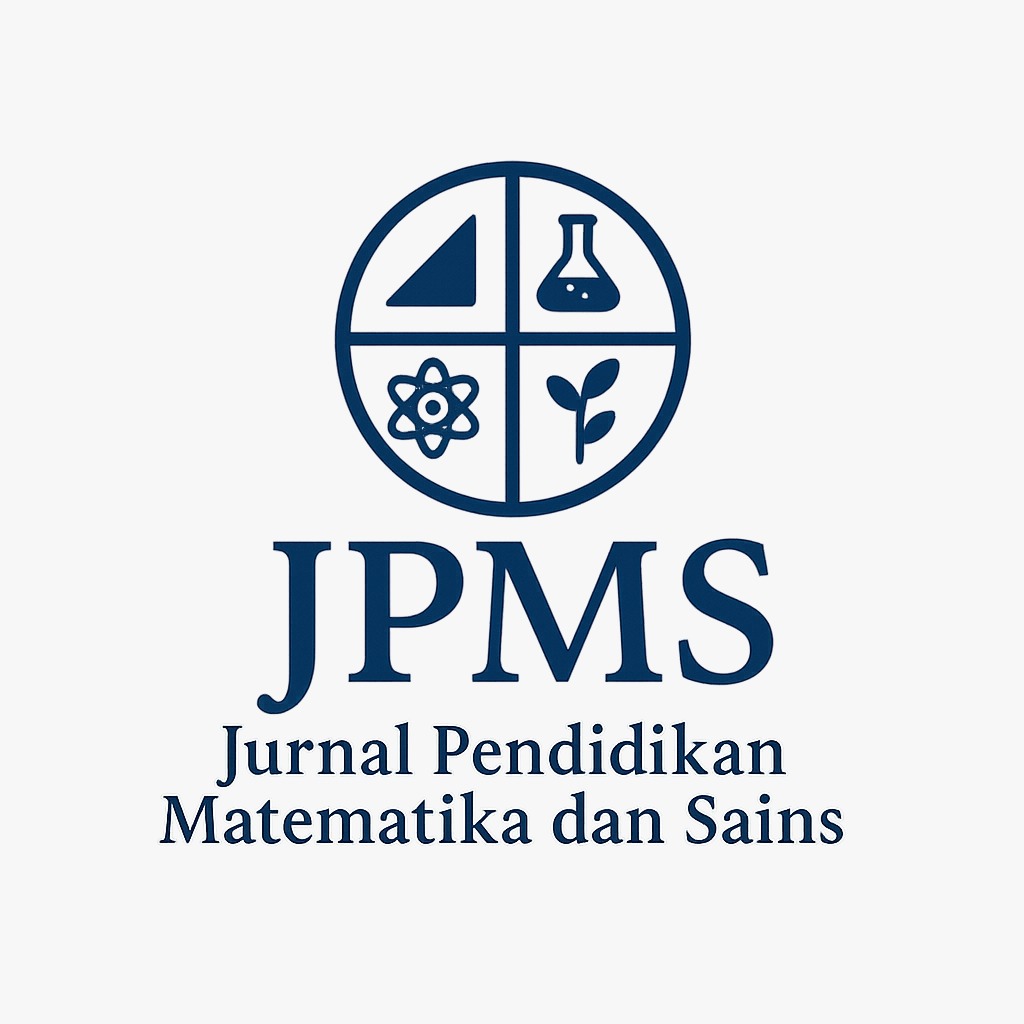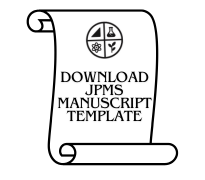How do Students Deal with Socio-scientific Issues: A Development of Students' Decision-Making Skills Instrument
DOI:
https://doi.org/10.21831/jpms.v12i1.75002Keywords:
decision-making, instrument, reliability, socio-scientific issues, validityAbstract
References
Ardwiyanti, D., & Prasetyo, Z. K. (2021). Exploring students' decision-making ability in the context of socio-scientific issues. Proceedings of the 6th International Seminar on Science Education (ISSE 2020), 541. https://doi.org/10.2991/assehr.k.210326.096
Bujang, M. A., Omar, E. D., & Baharum, N. A. (2018). A review on sample size determination for cronbach's alpha test: A simple guide for researchers. Malaysian Journal of Medical Sciences, 25(6), 85–99. https://doi.org/10.21315/mjms2018.25.6.9
Cí¢mpu, V. R., & Ciubotaru, A. (2017). Time consumption and productivity in manual tree felling with a chainsaw – A case study of resinous stands from mountainous areas. Silva Fennica, 51(2). https://doi.org/10.14214/sf.1657
Cian, H. (2020). The influence of context: comparing high school students' socioscientific reasoning by socioscientific topic. International Journal of Science Education, 42(9). https://doi.org/10.1080/09500693.2020.1767316
Dauer, J. M., Sorensen, A. E., & Wilson, J. (2021). Students' civic engagement self-efficacy varies across socioscientific issues contexts. Frontiers in Education, 6. https://doi.org/10.3389/feduc.2021.628784
Garrecht, C., Eckhardt, M., Hí¶ffler, T. N., & Harms, U. (2020). Fostering students' socioscientific decision-making: exploring the effectiveness of an environmental science competition. Disciplinary and Interdisciplinary Science Education Research, 2(1). https://doi.org/10.1186/s43031-020-00022-7
Halim, M., & Saat, R. M. (2017). Exploring students' understanding in making a decision on a socioscientific issue using a persuasive graphic organiser. Journal of Baltic Science Education, 16(5). https://doi.org/10.33225/jbse/17.16.813
Hsu, Y. S., & Lin, S. S. (2017). Prompting students to make socioscientific decisions: embedding metacognitive guidance in an e-learning environment. International Journal of Science Education, 39(7). https://doi.org/10.1080/09500693.2017.1312036
Hussey, I., Alsalti, T., Bosco, F., Elson, M., & Arslan, R. (2020). An aberrant abundance of Cronbach ' s alpha values at . 70. PsyArXiv. 10.31234/osf.io/dm8xn
Kennedy, I. (2022). Sample size determination in test-retest and cronbach alpha reliability estimates. British Journal of Contemporary Education, 2(1), 17–29. https://doi.org/10.52589/bjce-fy266hk9
Kılıí§, F. (2022). The relationship among entrepreneurship tendency, income level and life satisfaction of future business people: Generation z. International Business Research, 15(3), 1. https://doi.org/10.5539/ibr.v15n3p1
Leung, J. S. C. (2022). Shifting the teaching beliefs of preservice science teachers about socioscientific issues in a teacher education course. International Journal of Science and Mathematics Education, 20(4). https://doi.org/10.1007/s10763-021-10177-y
Meisert, A., & Bí¶ttcher, F. (2019). Towards a discourse-based understanding of sustainability education and decision making. Sustainability (Switzerland), 11(21). https://doi.org/10.3390/su11215902
Michalos, A. C. (2014). Pearson product moment correlation. In Encyclopedia of Quality of Life and Well-Being Research (pp. 4670–4670). Springer Netherlands. https://doi.org/10.1007/978-94-007-0753-5_102956
Oh, S. Y., Koh, S. J., Baek, J. Y., Kwon, K. A., Jeung, H. C., Lee, K. H., Won, Y. W., & Lee, H. J. (2019). Validity and reliability of korean version of simplified nutritional appetite questionnaire in patients with advanced cancer: A multicenter, longitudinal study Original Article. Cancer Research and Treatment, 51(4). https://doi.org/10.4143/CRT.2018.505
Petrovic D. Milun. (2012). Correlation analysis of milk production traits across three generations of Simmental cows. African Journal Of Biotechnology, 4(47). https://doi.org/10.5897/ajb11.1634
Puth, M. T., Neuhäuser, M., & Ruxton, G. D. (2014). Effective use of Pearson's product-moment correlation coefficient. In Animal Behaviour (Vol. 93). https://doi.org/10.1016/j.anbehav.2014.05.003
Sakamoto, M., Yamaguchi, E., Yamamoto, T., & Wakabayashi, K. (2021). An intervention study on students' decision-making towards consensus building on socio-scientific issues. International Journal of Science Education, 43(12). https://doi.org/10.1080/09500693.2021.1947541
Su, K. D. (2021). Implementation of SSI Concept Mapping as a Dynamic Learning Environment to Enhance Students' Scientific Performance. Journal of Baltic Science Education, 20(6). https://doi.org/10.33225/JBSE/21.20.969
Sí¼rí¼cí¼, L., & Maslakí§i, A. (2020). Validity and reliability in quantitative research. Business & Management Studies: An International Journal, 8(3), 2694–2726. https://doi.org/10.15295/bmij.v8i3.1540
Uzelac, M., Sladonja, B., Šola, I., Dudaš, S., Bilić, J., Famuyide, I. M., McGaw, L. J., Eloff, J. N., Mikulic-Petkovsek, M., & Poljuha, D. (2023). Invasive alien species as a potential source of phytopharmaceuticals: phenolic composition and antimicrobial and cytotoxic activity of Robinia Pseudoacacia L. leaf and flower extracts. Plants, 12(14). https://doi.org/10.3390/plants12142715
Yusoff, M. S. B. (2011). Reliability & validity of the adult learning inventory among medical students. Education in Medicine Journal, 3(1). https://doi.org/10.5959/eimj.3.1.2011.or3
Downloads
Published
How to Cite
Issue
Section
Citation Check
License
Jurnal Pendidikan Matematika dan Sains allows readers to read, download, copy, distribute, print, search, or link to its articles' full texts and allows readers to use them for any other lawful purpose. The journal allows the author(s) to hold the copyright without restrictions. Finally, the journal allows the author(s) to retain publishing rights without restrictions
- Authors are allowed to archive their submitted article in an open access repository
- Authors are allowed to archive the final published article in an open access repository with an acknowledgment of its initial publication in this journal

This work is licensed under a Creative Commons Attribution-ShareAlike 4.0 Generic License.





